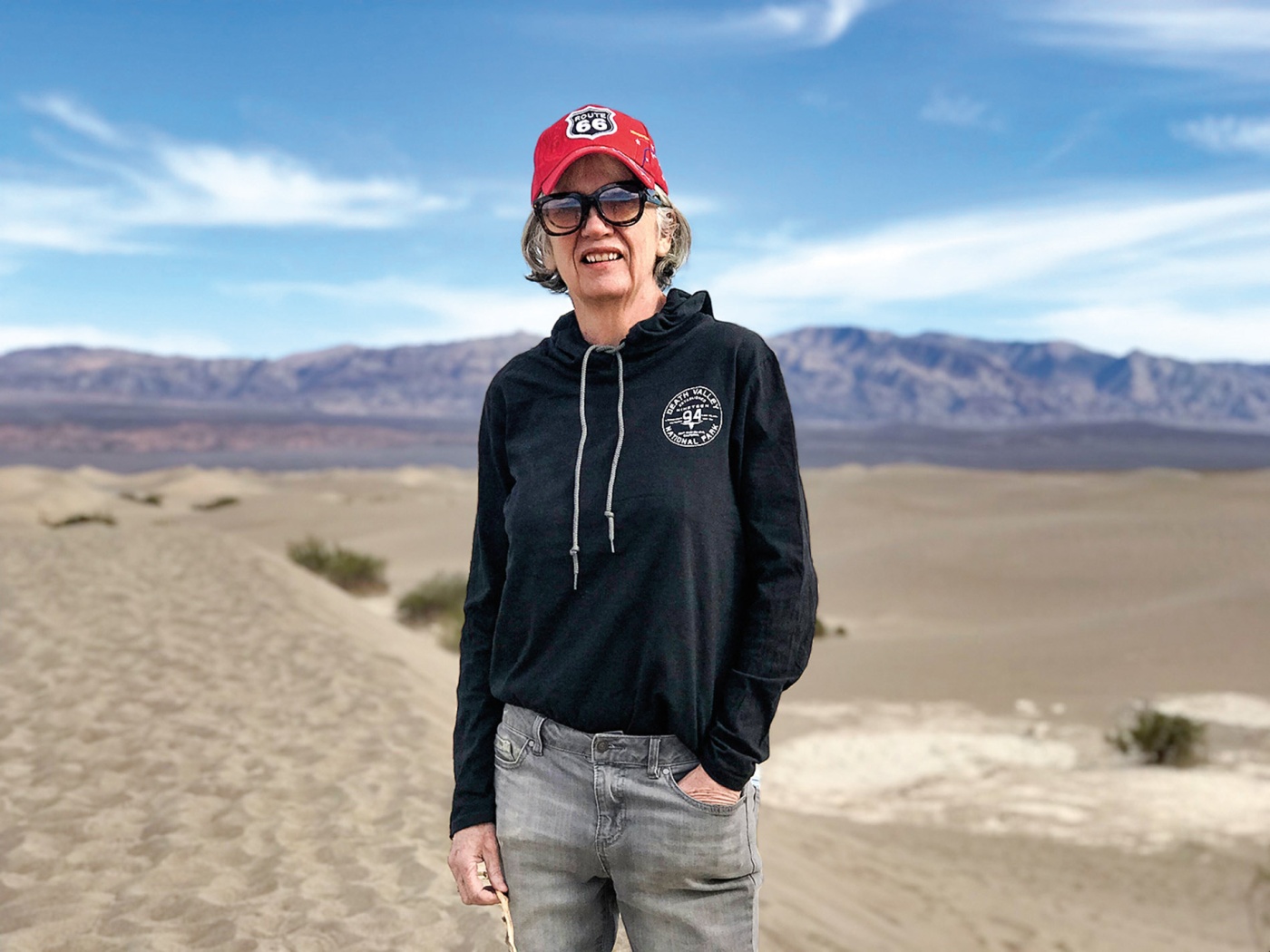LGBTQ Legal Warrior
Pat Logue ’81 won some of the most consequential gay rights cases in legal history

In 1996, at a time of few repercussions for schools that failed to prevent or punish harassment of students because they were LGBTQ, a gay Wisconsin public schooler named Jamie Nabozny took his school district to court. He had been physically bullied so badly that he needed abdominal surgery. He alleged that when he’d complained about the abuse to school officials, they’d told him it was his own fault because he was gay.
His case was argued by Pat Logue ’81, an openly lesbian lawyer who had left corporate law in 1993 to join the national LGBTQ rights group Lambda Legal Defense and Education Fund. That July of ’96, a U.S. appeals court jury ruled in Nabozny’s favor, saying that the school had failed to protect his constitutional rights and had to pay him nearly $1 million. A year later, the U.S. Department of Education clarified that Title IX required schools to provide students, including lesbian and gay ones, an environment free of harassment. Similar suits that followed Nabozny’s generally won.
Twenty-eight years later, Nabozny, now an anti-bullying advocate living in Minnesota with his husband and four kids, says of Logue: “She was both a brilliant lawyer and an incredibly kind human being. She knew the importance of my case to set precedent and help students across the country. At the same time, she also understood the emotional toll it took on me. She was always asking if I was sleeping, eating, and taking care of myself.”
Logue died on February 23 at age 64 due to complications of early-onset Alzheimer’s, which, according to Marcia Festen, her wife of more than two decades, she had been experiencing for eight years. She is survived by Festen; their two daughters Ruby, 20, and Ella, 18; as well as by a granddaughter, Hazel; four siblings; and many nieces and nephews. Her last job, begun in 2007, had been as a Cook County circuit judge in Chicago, which she had to leave once her symptoms took hold. Prior to that, she spent 14 years with Lambda, opening its Chicago office in 1993 and going on to argue and win some of the most important cases of LGBTQ rights of the turn of the last century. In a statement upon her death, Lambda said, “Pat Logue was a brilliant lawyer, a trailblazing jurist, and a hero to the LGBTQ community. Pat’s legacy includes numerous landmark cases she litigated...with Lambda that transformed the lives of LGBTQ people nationwide. She will be greatly missed.”
Logue was born and raised in Swarthmore, Pennsylvania. “It was a big deal that she went to Brown because her family were all Yale people,” says Festen. Logue’s roommate throughout Brown was Peggy Moser ’81, who recalls Logue “arriving at our freshman dorm with a lacrosse stick, a Snoopy poster in French, and a boxful of records by Joni Mitchell, whom she could quote for every occasion.” Moser, who says that Logue did not come out as gay until after Brown, recalls her friend as “a lovely combination of soft-spoken and sharp-witted, with a knack for finding playful humor in everyday situations.”
After Brown, Logue attended Northwestern Law School and worked in corporate law while serving for five years on the board of Lambda. After she was hired there in 1993, her titles over the years included interim legal director and director of constitutional litigation. But her true contributions were the cases she argued or co-argued (and usually won), from Nabozny’s case to the Supreme Court’s landmark 2003 Lawrence v. Texas, which struck down remaining sodomy laws nationally. According to Lambda’s release upon her death, one of her co-counsels on the case, Paul Smith, “later reflected that Pat was his toughest and most effective coach as he prepared to argue the case.”
Logue also fought and won cases on behalf of servicemembers discharged from the military for violating the 1994-2011 “Don’t Ask, Don’t Tell” ban on gay servicemembers, as well as the ban on servicemembers living with HIV (which a court struck down in 2022). She also won a series of cases nationwide that ruled that the children of LGBTQ parents had a legally protected relationship with them. Said the Lambda release: “It is no exaggeration to say that because of Pat’s work... thousands of children...have grown up knowing—and being loved by—the adults who brought them into their families.”
After Lambda, as a judge, Logue performed marriage ceremonies for many same-sex couples— “in fitting recognition and celebration,” read the Lambda release, “of her role in achieving the milestones that made marriage equality possible.” Logue also received numerous honors for her work over her lifetime, including the National Lesbian and Gay Lawyers Association’s Dan Bradley Award, which is the highest honor given to outstanding leaders in the LGBTQ legal community.
Festen recalls that when she first met Logue in 1996, through a mutual friend, “I wasn’t too sure about her—she was in her head a lot, very intellectual and quiet and not self-assuming, and hard to get to know.” Moreover, says Festen, they were opposites; Festen loved arts and culture, while Logue was devoted to the Chicago Cubs, Bears, and Bulls. But the fact that Logue was “one-hundred percent supportive of whatever I wanted to do,” says Festen, was one of the things that changed her mind. The couple had a commitment ceremony in 2002 and were legally married on the beach in Martha’s Vineyard in 2008.
“Pat was very mild-mannered until you saw her in the courtroom,” says Festen, who watched Logue argue Lawrence before the Supreme Court in 2003. “She was so articulate and clear and calm,” she recalls. “The smartest person you would ever meet. Every Sunday, I would start the New York Times crossword puzzle—and she would finish it.” She regretted that their two daughters “had grown up watching their mom disappear—they never got to see her brilliance.”





